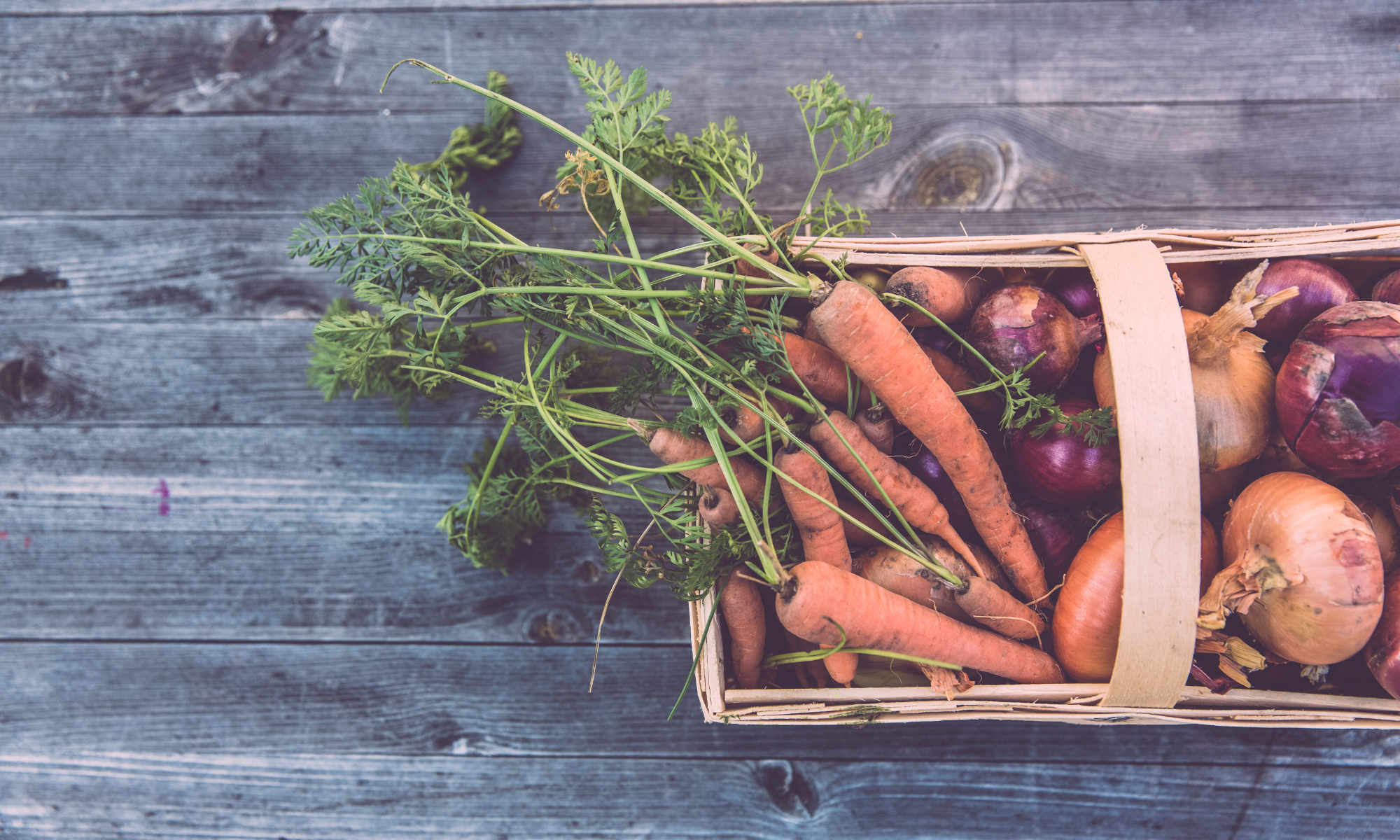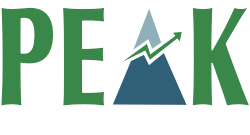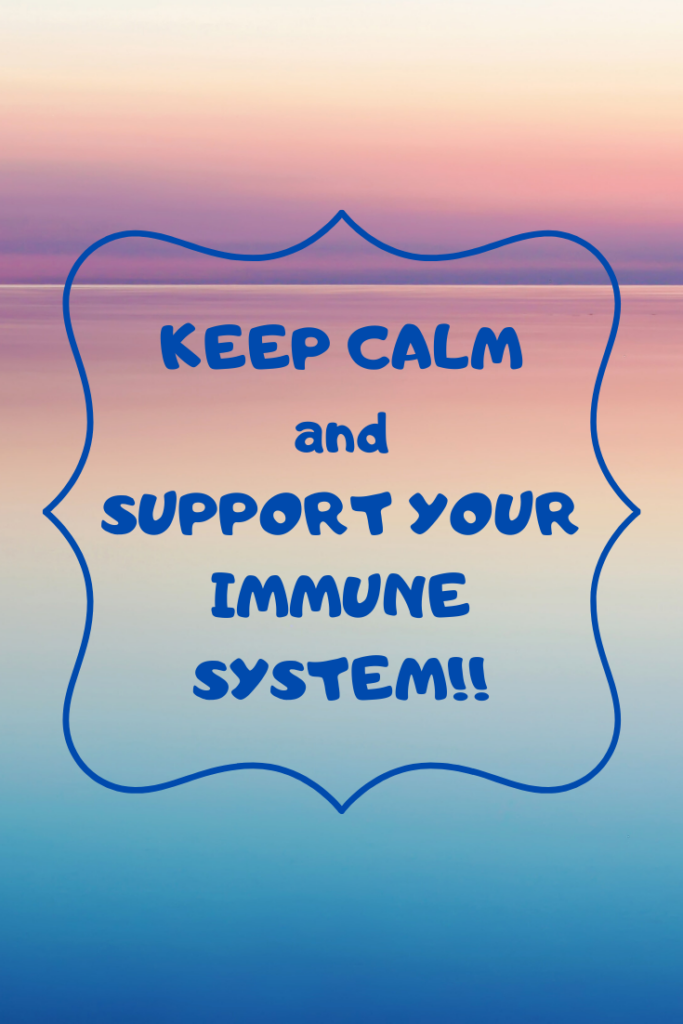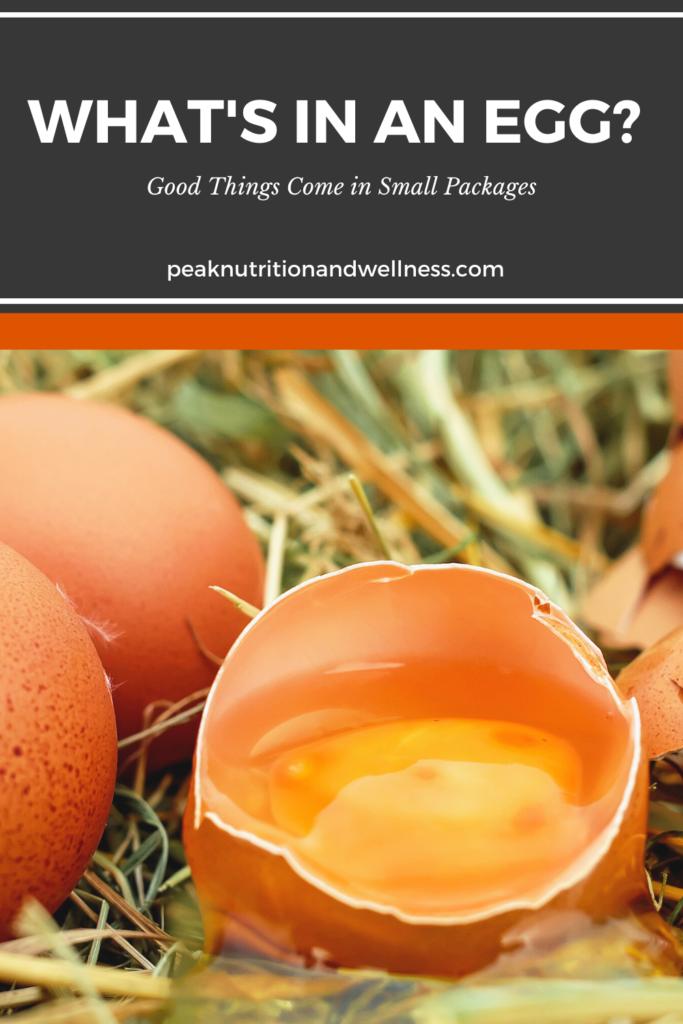
Ah, the incredible, edible egg. In this final post in my triple header on eggs, I’m cracking open the shell to discover the nutritional benefits of eggs. If you missed the first two posts in the series, you can click here to read up on what egg carton labels really mean and here to dispel some common misconceptions about eggs. Now on to nutrition!
Eggs are not only delicious, they are an amazing, cost effective source of a whole host of nutrients. In fact, they are the MOST cost effective food for delivering protein and choline (important for many things, including our cell membrane health, mood, memory and fat metabolism), the second most cost effective dietary source for Vitamin A and the third for Vitamins D and E (1).
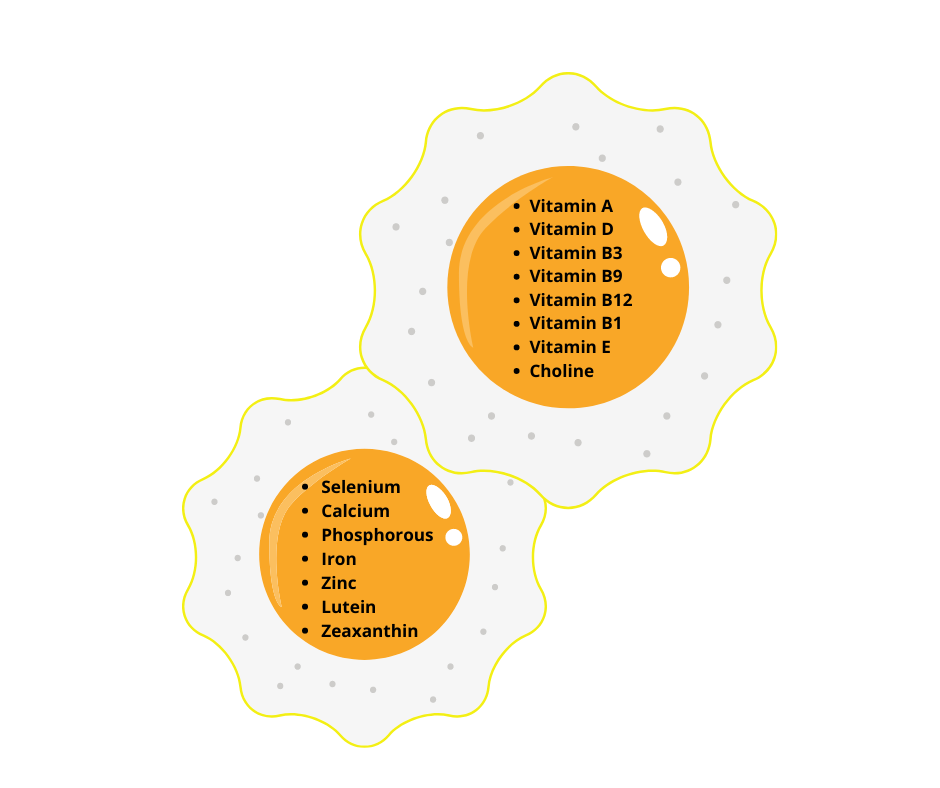
A large egg has about 7 grams of protein that is almost evenly divided between the white and the yolk. (4 grams in the white and 3 grams in the yolk). Protein is really the end of the road, nutrient wise, for egg whites. The yolks, on the other hand, are nutrient gold! Besides a decent amount of protein, yolks contain a wide variety of minerals, water soluble vitamins (B vitamins) and fat soluble vitamins like Vitamin A, D and E (and the fat needed to let you absorb those fat soluble vitamins). On top of this, egg yolks also contain two phytonutrients, lutein and zeaxantin. These are important nutrients for eye health and can help prevent cataracts and macular degeneration.
Pasture raised Vs Conventional – Is there a difference?
The amount of protein in a pasture raised egg versus a conventional egg does not differ to any great degree. Where we start to see differences is in the nutrient density of the egg yolks. Studies have shown that the amount of fat soluble vitamins contained in the yolk, like Vitamins A, E and D, is highly dependent on the hen’s diet and sun exposure.
In a 2010 study, it was found that pasture raised eggs have twice as much vitamin E, two and a half times more Omega 3 fatty acids and a much better Omega 3 to Omega 6 fatty acid ratio (important for inflammation management). The concentration of Vitamin A in pasture raised eggs was found to be 38% higher than in conventional eggs (2).
In another study, the Vitamin D in egg yolks was found to be 3 to 4 times higher in the eggs of hen’s who get to spend some time sunbathing (pasture raised or free range). The more sunlight the hen’s were exposed to, the higher the vitamin D content (3).
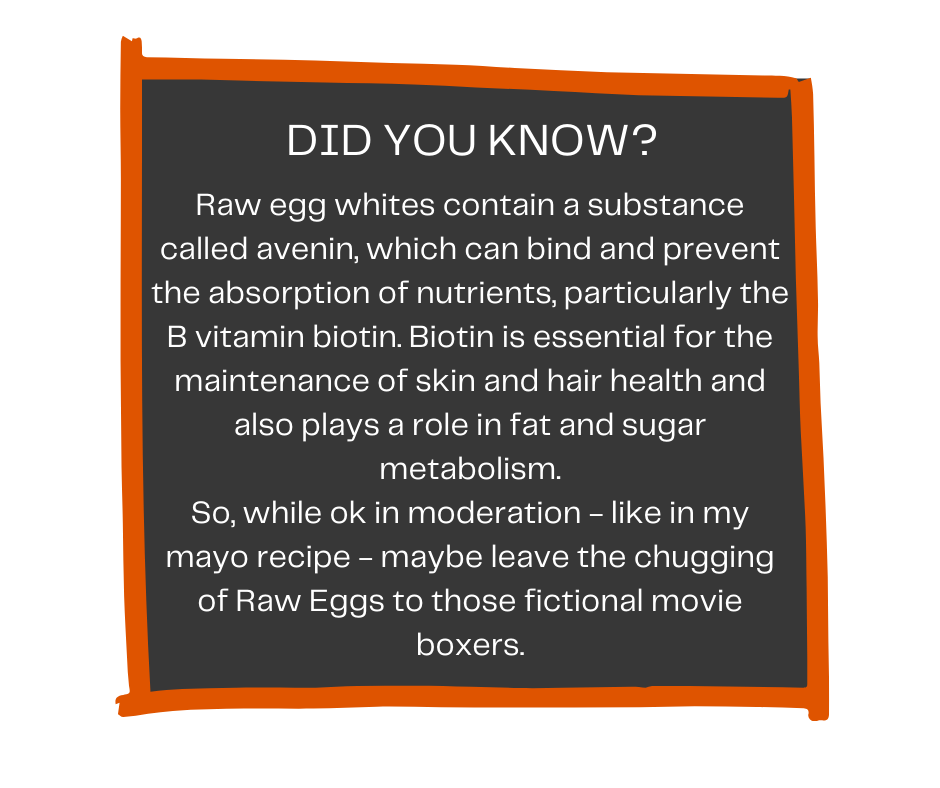
Just Yolkin’ Around
The colour of yolk can range from pale yellow to a bright, almost reddish orange. This is dependent on the diet of the hen. The more colourful and varied the hen’s diet, the more colourful the yolk will be. The vividness of the yolk is largely due to the amount of carotenoids (lutein and zeaxanthin) it contains. Carotenoids are phytonutrients with potent antioxidant properties. In general, the more colorful a food is, the more nutrient dense it is! (Unless we’re talking Skittles…this only applies to REAL food folks!)
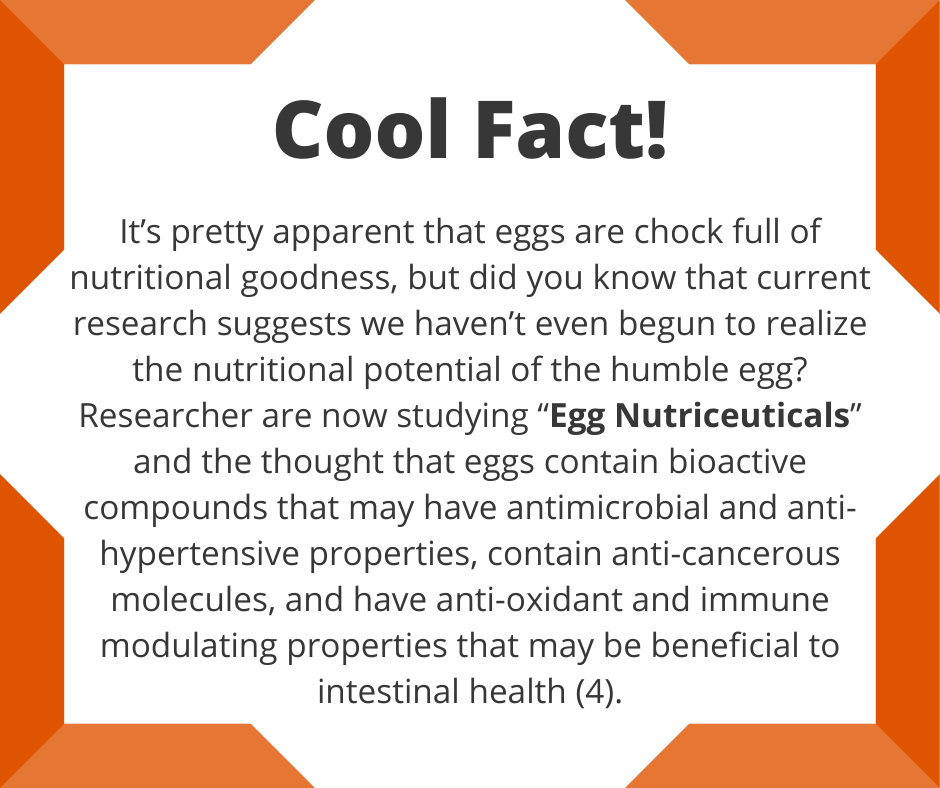
GET CRACKIN’!!!
Eggs are jam packed full of nutrients our bodies need to stay healthy and function optimally. While we all have different budgets, I think spending a little bit more on pasture raised eggs is worth it, not only for the added nutrient density, but ethically and morally. Chickens should be allowed to be chickens, free to forage for bugs and enjoy fresh air and sunshine!
If you are looking for ways to enjoy those beautiful eggs, check out my upcoming recipe for Devilled Eggs!
ONE LAST THING
Eggs are a great, nutrient rich food to include in your healthy diet, UNLESS you are sensitive or allergic to them! If you have a true egg allergy, you must not consume eggs. An intolerance or sensitivity to eggs is different than an allergy. Eggs are one of the more common food sensitivities (along with things like gluten, dairy, soy and corn). All of the great nutrition they contain won’t do you much good if they are also causing inflammation! If you suspect you may be sensitive, try eliminating eggs for a period of time and then re-introducing them and monitor for any reaction. If you want to know more about identifying food sensitivities, a Nutritional Therapy Practitioner (like me!) can help you out!
SOURCES
- Papanikolaou, Y., Fulgoni, V.L.. 3rd (2020). Eggs Are Cost Efficient in Delivering Several Shortfall Nutrients in the American Diet: A Cost-Analysis in Children and Adults. Nutrients, 12(8), 2406. https://doi.org/10.3390/nu12082406
- Karsten, H., Patterson, P., Stout, R., & Crews, G. (2010). Vitamins A, E and fatty acid composition of the eggs of caged hens and pastured hens. Renewable Agriculture and Food Systems, 25(1), 45-54. https://doi.org/10.1017/S1742170509990214
- Kühn J, Schutkowski A, Kluge H, Hirche F, Stangl GI. Free-range farming: a natural alternative to produce vitamin D-enriched eggs. Nutrition. 2014 Apr;30(4):481-4. https://doi.org/10.1016/j.nut.2013.10.002
- Réhault-Godbert S, Guyot N, Nys Y. The Golden Egg: Nutritional Value, Bioactivities, and Emerging Benefits for Human Health. Nutrients. 2019; 11(3):684. https://doi.org/10.3390/nu11030684
